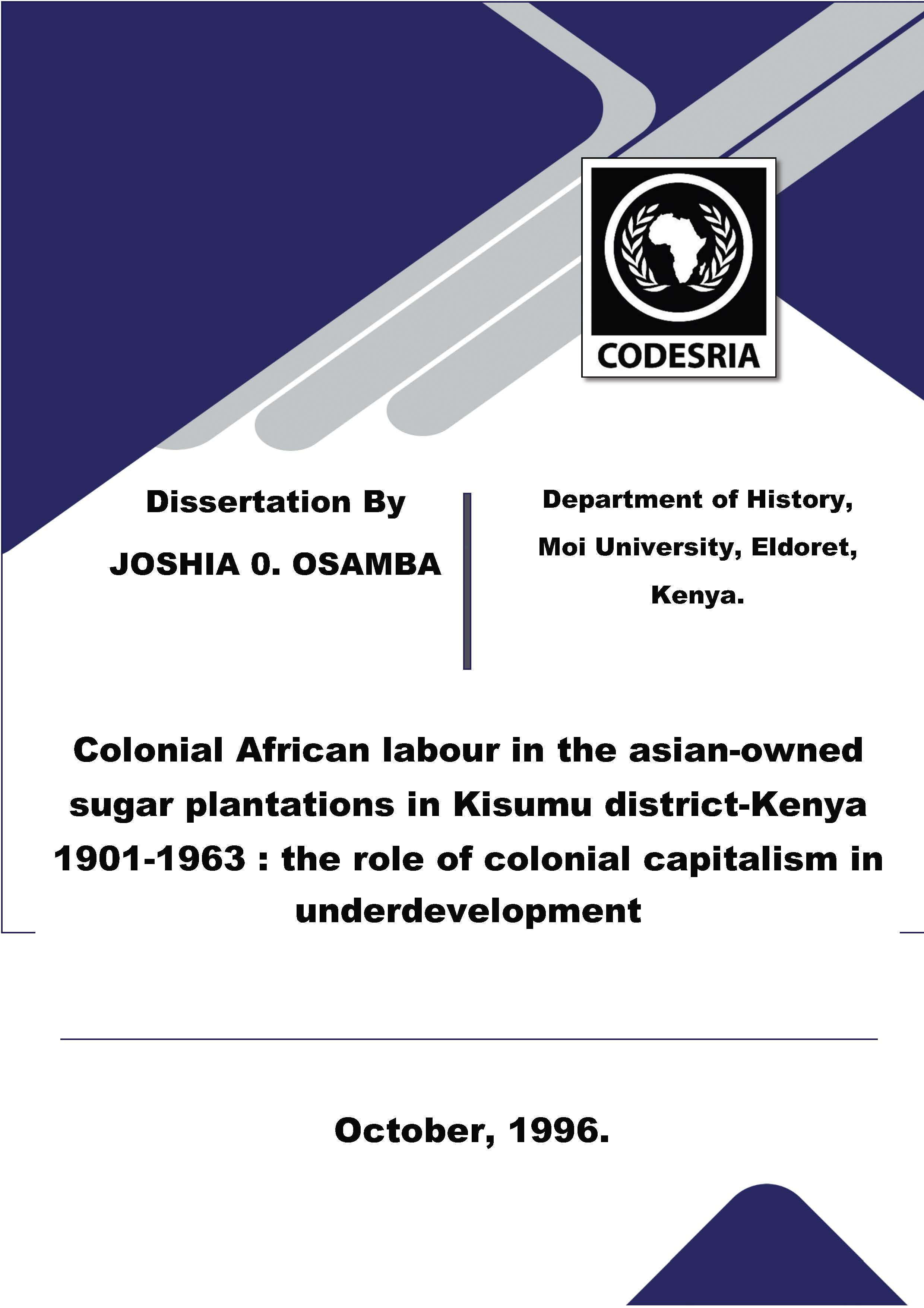Colonial African labour in the asian-owned sugar plantations in Kisumu district-Kenya 1901-1963 : the role of colonial capitalism in underdevelopment
Keywords:
Labour supply, economic recession, migrant workers, colonialism, agriculture, colonial labour, Asia, KenyaSynopsis
The colonial government in Kenya favoured the establishment of white settler
plantations in the country, though a small number of Asian farmers were granted land
in Kisumu District from 1902. These Asians cultivated sugar cane and other crops.
The African labourers in the sugar plantations were exploited by the Asian
farmers. This was manifested in low wages, poor working conditions and arduous tasks.
Although the Asian farmers paid their labourers low wages compared to other
employers, a significant number of Africans preferred to work for them for reasons
of proximity to African reserves, short contracts and the daily payment practice
adopted by Asian employers. Later Africans began to work for longer contracts in the
sugar plantations because they realised that wage labour was more reliable means of
learning an income than peasant agriculture. At the same time due to competition for
labour by other employers, the Asian farmers engaged labourers on longer contracts.
African labourers never accepted their poor working conditions on the Asian
plantations as a fait accompli. Rather from the outset they made concerted attempts
Downloads
References
Nyanza Province Annual Reports 1905-59 (selected years).
Kisumu - Londiani District Annual Reports 1925-39 (selected years).
Central Nyanza District Annual Reports 1949-59 (selected years).
Central Kavirondo District Annual Reports 1921-47 (selected years).
Kisumu District Annual and Quarterly Reports
-21.






